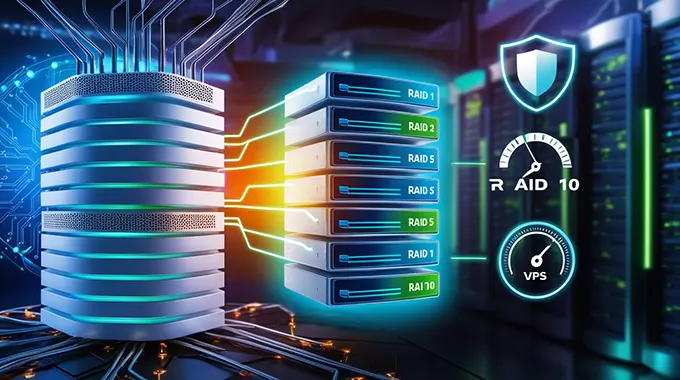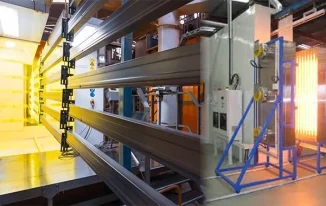The realm of web hosting services and data management are intertwined. Redundant Array of Independent Disks, i.e., RAID, is a powerful technology that connects both these landscapes. This method combines multiple disk drives into one unit to store data.
RAID setups are usually associated with physical servers. However, implementing RAID on virtual private servers can significantly improve data security availability, processing speed and fault tolerance.
In this blog, we discuss how the RAID technology works and how it benefits VPS performance.
Implement RAID on Your VPS Hosting: Improve Data Redundancy and Performance
Multiple RAID levels are available in the market. You make your choice based on your requirements:
RAID 0: Good performance
RAID 1: Enhanced data protection
RAID 5: Withstands failures with one disk
RAID 6: Withstands failures with two disks
Below are the three primary functions when implementing RAID levels. Let us understand these functions.
Disk Striping
Disk striping divides data into blocks and distributes it across multiple disks. Since the server can access or store data from or to multiple disks simultaneously, this method significantly increases read and write speeds.
There are multiple advantages. However, one limitation is that it holds low resilience and lacks data redundancy. This means that if one disk fails, the VPS server data is compromised.
Disk Mirroring
As the name suggests, disk mirroring is used to duplicate your VPS hosting data across two disks. This method ensures that if one disk fails, the other still contains all the data. Mirroring offers a high degree of fault tolerance and data protection, making it suitable for users who prioritise data security over storage capacity.
Parity
RAID levels that use parity store parity data along with actual VPS hosting data across multiple disks. Parity checks are used to rebuild lost data in the event of a disk failure, combining both redundancy and efficient storage usage.
Benefits of Implementing RAID on Your Virtual Private Server Hosting
- Fault tolerance is vital for businesses and applications where data availability is critical. Fault tolerance is the ability of your VPS hosting server to function even when an element has failed.
- With the help of the disk striping mechanism, you can read and write data across multiple disks, allowing quick access to large databases or process-intensive applications.
- Implementing RAID on a VPS hosting security system can be a robust security strategy. Some RAID configurations prevent data loss by duplicating data across disks. Others add a layer of security, ensuring that data can be restored in the event of disk failure.
- With RAID, data availability is maximised even during system maintenance or component failure. The uninterrupted access is especially valuable for high-demand applications.
- RAID setups offer flexible capacity to your VPS hosting server where parity data only takes up a small portion of the total storage. This approach allows for efficient storage usage while providing a degree of redundancy.
Conclusion
Integrating the RAID technology on a VPS hosting server can be a game-changer for businesses seeking enhanced data redundancy and performance.
You can choose between different RAID configurations, such as RAID 0 for performance, RAID 1 for redundancy or RAID 5 or RAID 6 for a balanced approach. This allows you to tailor every aspect of the process, creating a reliable and optimised VPS server.













